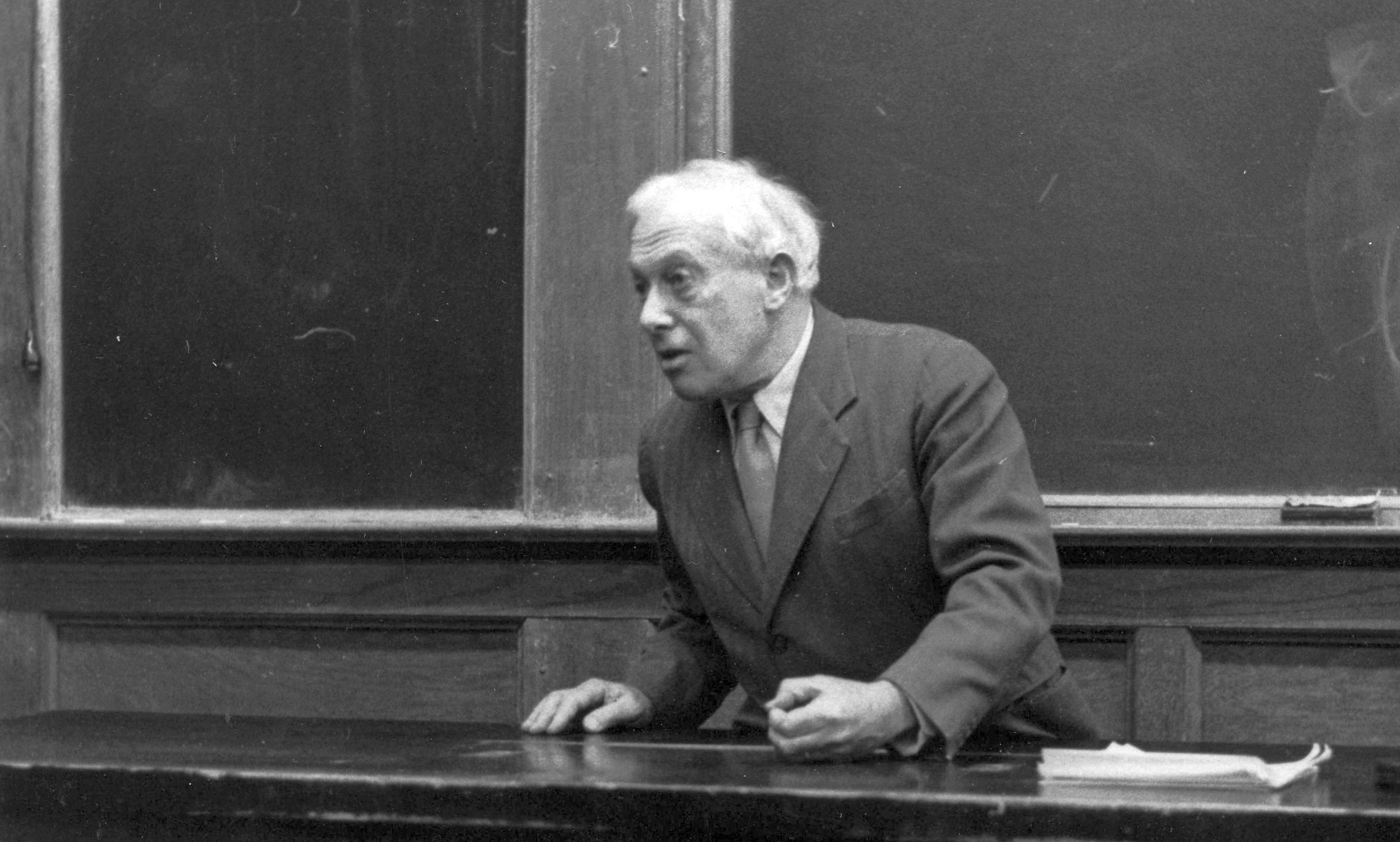Volume 16: Greek Philosophy (1956)
Twenty-six 1½ hour lectures.
Today we do not care for the Greek systems of philosophy, but we care terribly much for the philosophers. The Greek philosophers are the great argument in our fight for the truth of our own freedom, our own faith, and our own creativity. Every one of these men broke away from one system, which he inherited, you see, and began his own.
—January 24, 1957

Rosenstock-Huessy shocked his colleagues by planning a course he had never taught before for his last year at Dartmouth. But he felt that after all his criticism of the Greeks and the unfortunate fallout of their way of thinking in the Enlightenment, he owed it to them to acknowledge their contribution to mankind’s universal history and to honor their great achievements.
The major topics are: philosophy versus: prophecy, religion, the arts and sciences, prayer, and Christianity. Further topics include Homer, myth, the pre-Socratics, Parmenides and Heraclitus; object and subject; Socrates; Plato, the Good, the Beautiful, and the True, and the Symposion; Aristotle; miracle, division of labor, ethics; universals; schools; academies; universities; names and nature; Christian progress and future.
